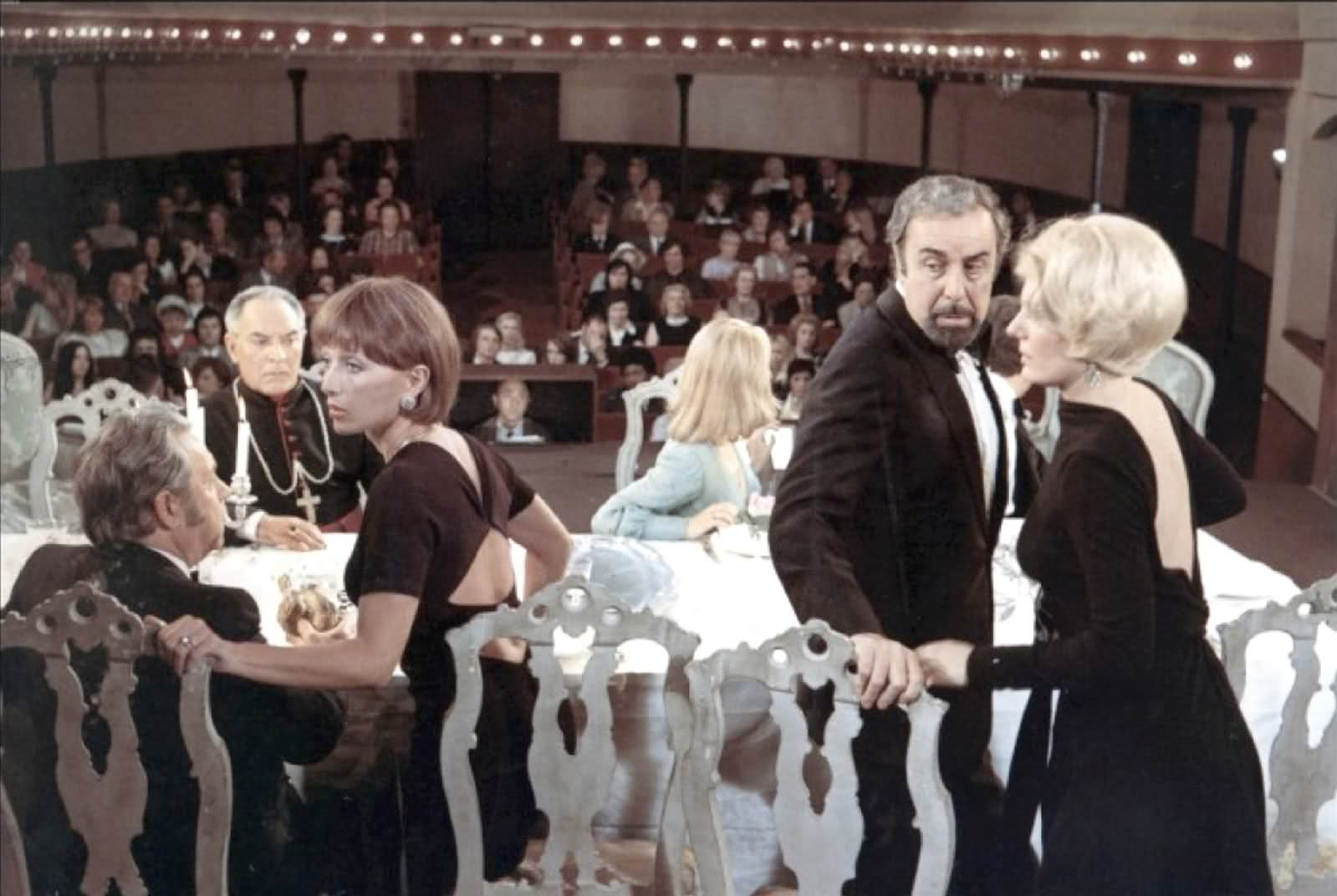The 2nd discovery began with The Exterminating Angel, followed by The Discreet Charm of the Bourgeoisie, and then The Phantom of Liberty.

The Discreet Charm of the Bourgeoisie has a simple plot: if The Exterminating Angel is about a group of affluent people who come to a dinner party and afterwards find themselves unable to leave the room for whatever reasons, even though there is no physical barrier, this film is about a group of bourgeois friends who keep trying to have a meal together but keep getting interrupted by 1 reason or another. However, whereas The Exterminating Angel has a conflict (the characters’ inexplicable inability to leave a room) and the need for resolution (even though the conflict relies on surrealism and absurdist logic), it has a structure more or less, The Discreet Charm of the Bourgeois has no structure. The characters’ determined plan to have a meal together constantly gets interrupted by bizarre incidents, and the narrative is interrupted by dreams, and dream-like episodes that have little to do with the rest of the story. And yet there is a flow, and everything binds together, fits together, beautifully.
The Phantom of Liberty has even less of a narrative. The film is made up of about a dozen episodes linked only by the movement of 1 character from 1 situation to another. What does it all mean? What does it all amount to? I don’t know. My sensibilities are rather different from Bunuel’s, and I feel closer to Ingmar Bergman, or Fellini. But I’ve realised that even though all 3 auteurs blended reality with dreams and fantasy in their works, and compared film to dream, Bunuel went further than Bergman and Fellini—he was working, conversing in dream language. Each episode in The Phantom of Liberty is surreal and built on dream logic, like 2 parents file a report on their not-missing daughter and act as though she’s not right next to them, or a bunch of people sit down on toilets together in a living room and discuss the issue of body waste, but go to a small private room to eat on their own, and so on. Once in a while, 2 characters cross paths, and the story spins off in another direction, leaving the previous narrative unfinished and hanging, like a dream. I can’t pin it down, I can’t decode it, but should I try to? It seems fruitless, like an attempt to analyse a dream.
Years later, I still don’t get Bunuel, the way I think I get Bergman. My background is in literature, I’m interested in the mind, in people and their self-contradictions. But he’s indisputably a great director, and unlike anyone else. And he’s fascinating.
No comments:
Post a Comment
Be not afraid, gentle readers! Share your thoughts!
(Make sure to save your text before hitting publish, in case your comment gets buried in the attic, never to be seen again).